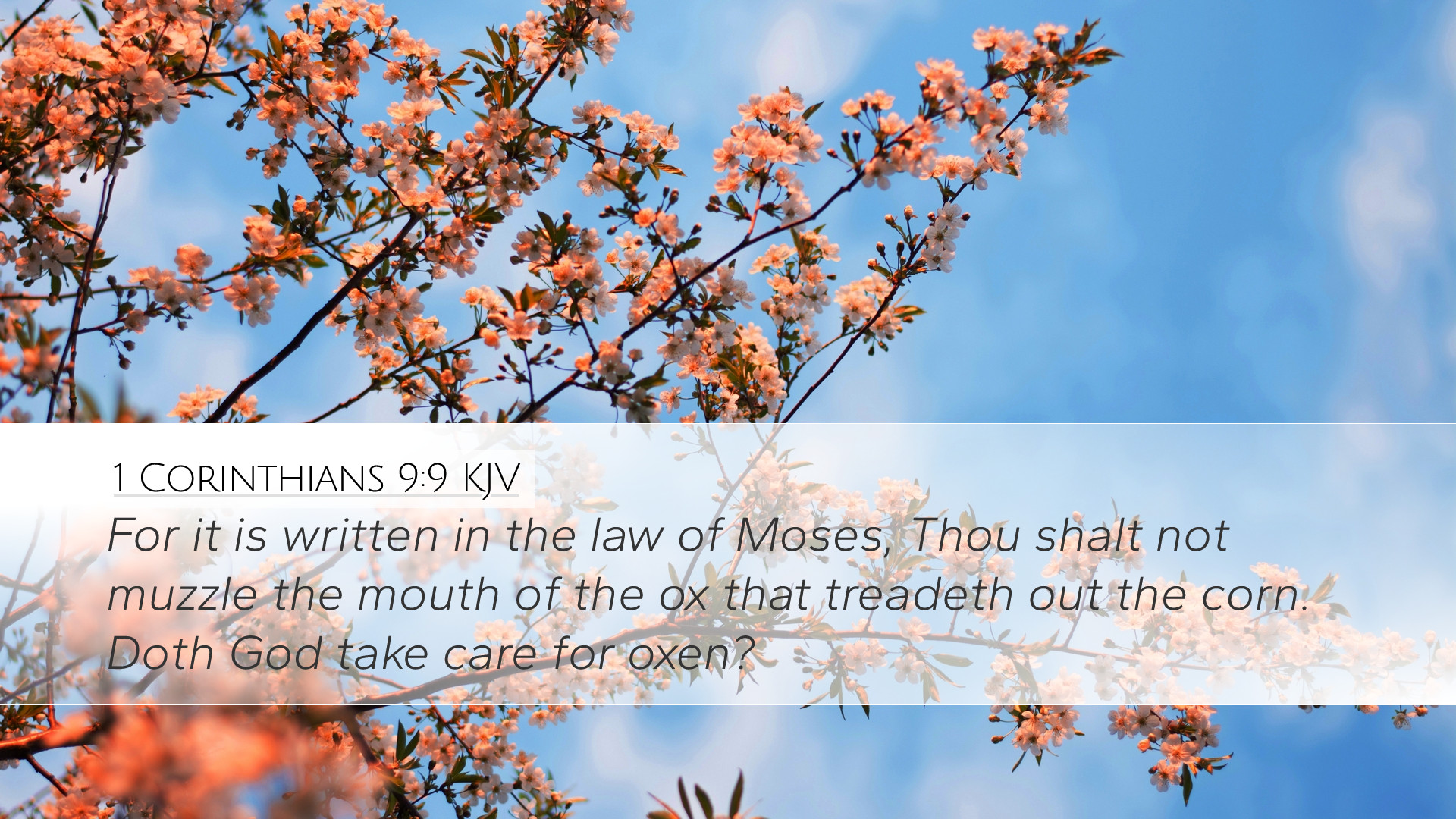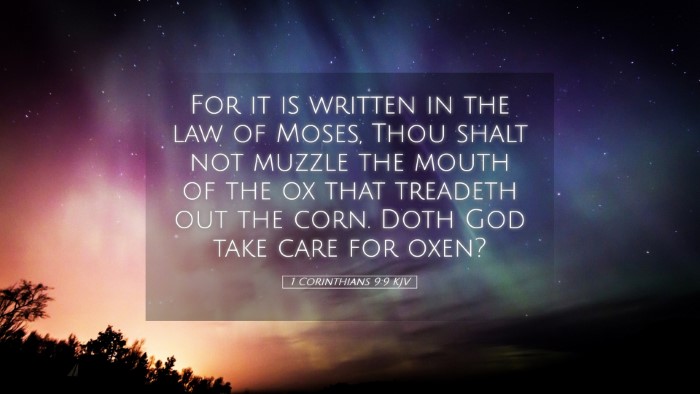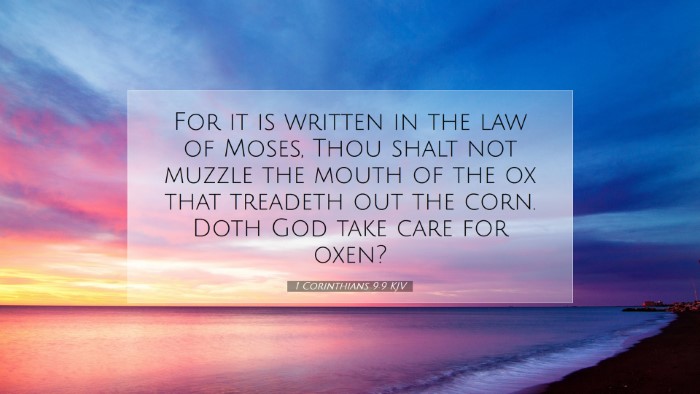Commentary on 1 Corinthians 9:9
The verse 1 Corinthians 9:9 states: "For it is written in the law of Moses, Thou shalt not muzzle the mouth of the ox that treadeth out the corn. Doth God take care for oxen?" This passage is imbued with theological significance, utilizing the Old Testament teaching to articulate profound truths about pastoral care, the rights of ministers, and God's providential concern for all creation.
Contextual Analysis
In this chapter, the Apostle Paul defends his apostolic authority and right to receive support from the churches he serves. He employs a range of arguments to establish validity in his ministry and purpose. The specific reference to the ox in 1 Corinthians 9:9 is a metaphor illustrating a broader principle about the welfare of ministers and perhaps more profoundly, the loving character of God towards all His creatures.
Insights from Public Domain Commentaries
Matthew Henry’s Commentary
Matthew Henry emphasizes the importance of the scriptural reference: the prohibition against muzzling an ox while it is working is seen as an illustration of God's care not just for animals but, by extension, for those who labor in spiritual fields. Henry asserts that the Lord is concerned about those who minister, much like the laborer's right to sustenance is honored by God. This command, though pertaining to an ox, lays the groundwork for understanding how ministers of the Gospel should be treated justly, in light of their service.
Albert Barnes’ Notes on the Bible
Albert Barnes elucidates the practical implications of the verse by questioning the logic of God providing for the oxen only to disregard the needs of His people. He interprets Paul’s use of the phrase as evidence of a broader divine principle: if God cares for animals, He certainly cares for His ministers. Barnes sees Paul's argument as one that affirms the intrinsic dignity of labor, highlighting that those who preach the Gospel should indeed support their material needs through the communities they serve. This serves as a theological affirmation that ministers should not be deprived of their due compensation.
Adam Clarke’s Commentary
Adam Clarke presents a detailed study of the phrase and context, asserting that Paul’s citation serves to further illustrate the duty of the church towards those committed to their spiritual care. Clarke posits that the quote from Deuteronomy 25:4 should remind the community of believers about the just treatment of all laborers, engaging readers to reflect on their responsibilities toward those who labor in God’s vineyard. Clarke elaborates by affirming that while the verse pertains to physical sustenance, it also speaks volumes about respect and honor for those who sacrifice for spiritual growth.
Theological Reflections
The theological implications of this verse extend beyond mere sustenance. They draw attention to God’s overarching concern for creation and the equitable treatment of all His servants. In context, Paul’s argument posits that Spiritual leaders are worthy of honor and material support. The concept of labor being valued resonates throughout the Scripture, drawing parallels between the physical and spiritual realms.
Application for Modern Readers
The implications of 1 Corinthians 9:9 challenge modern congregations to actively discern how they support their leaders. It invites a reflection on communal responsibility mimicking the principles laid out in the Old Testament. Pastors and leaders should engage their congregations in understanding their needs and honoring those who dedicate their lives to spiritual nourishment.
-
Pastoral Insights: Those in pastoral roles may find encouragement in the reminder that their work is valued in God’s sight, paralleling His care for mundane creatures.
-
Theological Study: Scholars can glean from the interconnectedness of biblical themes of justice, mercy, and support across both the old and the new covenants.
-
Congregational Responsibility: Churches, when reading this scripture, should reflect on their approach to honoring and supporting their spiritual leaders, going beyond financial aspects to include emotional and spiritual encouragement as well.
Conclusion
In conclusion, 1 Corinthians 9:9 serves as a profound reminder of not only God’s concerns for His creation but also the inherent dignity that comes with spiritual labor. Through Paul’s argument, we see a call for equitable treatment and support for those called to minister. The insights drawn from the commentaries of Matthew Henry, Albert Barnes, and Adam Clarke offer rich layers of understanding that can aid pastors, theologians, and students in their journey of faith and service.


